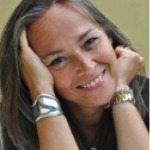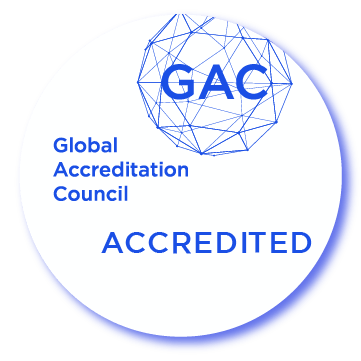
Dissertation Writing and Research Methods, Chartres, France, June 28 – July 3, 2020
SPECIAL NOTICE: Due to the COVID-19 pandemic we are moving all of our in-person courses into a virtual environment with reduced tuition fees. Please check back soon for further details.
The Wisdom School at Ubiquity University recognizes that students need support when tackling their master’s thesis or doctoral proposals and dissertations. To address these needs, every 12-18 months we offer the Dissertation Writing and Research Methods course that introduces students to tactics for planning, writing and revising their research to produce polished, clear and highly efficient academic writing. Spending five days together in this focused way provides you with the opportunity for in-depth discussion with both the faculty and your peers, and a chance to receive valuable ideas and feedback from the group. Students frequently report back to us that this is one of the most energizing and inspiring courses they have taken. NOTE: This course is open to Masters thesis students who will benefit from this essential course in order to write an outstanding dissertation. 
Dates: June 28 – July 3, 2020
Location: Chartres, France
Faculty: Gyorgyi Szabo, PhD, Melissa Pritchard, MFA
Academic Credit: Ubiquity University Masters – 4 credits; The Wisdom School (WS) Doctoral – 4 credits
Limited Enrollment: This course is available to enrolled MA and PhD students only
Logistics Info: Travel & Accommodations, Arrival & Departure (click here)
Email for more information
Dissertation Writing and Research Methods
During this five-day intensive, students will familiarize themselves with the writing and research methods specific to a wisdom school, where the focus is not only on the rational understanding of material but also on the students’ interior journey. Such methods combine objective and subjective elements, joining rigorous analysis with personal introspection, encouraging both intellectual understanding of the material at hand and self-awareness about the proclivities and perspectives that one brings to it.
By exploring both sides of this objective/subjective dynamic, the course aims to help students determine dissertation topics that are suited to their personal journeys, as well as develop strategies that will enrich and advance their projects. They will engage in exercises intended to help them tap their interior wisdom as they hone a topic and give shape to a proposal. In an ambience of mutual support, students will share their dissertation ideas, plans and concerns with student peers and faculty. They will review dissertation requirements, discuss different research methods, and become familiar with helpful resources for the American Psychological Association style of writing, which is required for all dissertations at the University. After once taking the course for credit, matriculated students are welcome to repeat it as auditors for a small administrative fee, should they feel it helpful in the ongoing preparation of their dissertations.
Transformational Art
“Tell me, what is it you plan to do
With your one wild and precious life?”
—from Mary Oliver’s The Summer Day
Our teacher this year will be journalist and author Melissa Pritchard. To write powerfully, from a place of inner pilgrimage, laboring for core truths, requires passion, courage and self-discipline. Using exercises drawn from a variety of artistic mediums and spiritual processes, including visual art, theater, writing, music and meditation, we will stimulate intuitive and sensory intelligence, awaken powers of observation and imagination, expand memory, learn to deflect self-sabotage and find the strength to take joyful risks. By forging crucial connections between the wisdom of the senses, the intellect and the spirit, we will align deeper self-awareness with a creative, meaningful shaping of dissertation subjects.

Course Learning Objectives
- Build a supportive community of fellow pilgrims on the dissertation journey.
- Tap one’s own inner wisdom to help shape and refine a dissertation topic.
- Hone one’s dissertation ideas within a creative crucible of shared inquiry.
- Identify the ontological and epistemological perspectives of various research methodologies.
- Develop strategies to promote the process of writing and completing the dissertation.
Instructional Mode and Methods
- In-person lecture and didactic presentation during 5 consecutive days of classes.
- Peer and faculty acknowledgement, feedback, and support of dissertation ideas through class discussion.
- Creative expression of one’s dissertation journey.
- Integration of learning in a draft dissertation proposal.
Course Modules & Topics
- Opening Gathering: Personal introductions, brief introduction of seminar goals and methods, preliminary description of projects
- Sacred Practice
- Seminar:
- Elaboration of seminar goals and methods
- Ways of knowing
- Presentations of intellectual/creative autobiographies
- Transformational Art
- Integration session
- Evening salon
- Sacred Practice
- Seminar:
- Historical context of doctoral degrees (PhD and DMin)
- Writing for a community
- Distinction between PhD, DMin degrees
- Presentation, discussion of projects
- Transformational Art
- Integration session
- Evening salon
- Sacred Practice
- Seminar:
- The nature of research
- Modes and procedures of qualitative research
- Presentation, discussion of projects, continued
- Transformational Art
- Evening salon
- Sacred Practice
- Seminar:
- Research design and methodologies
- Presentation, discussion of projects, continued
- Transformational Art
- Integration session
- Evening salon
- Sacred Practice
- Seminar:
- Ethical considerations in research
- APA guidelines and requirements of the Wisdom School
- Presentation, discussion of projects, continued
- Closing circle
Faculty
 Gyorgyi Szabo, PhD serves as Ubiquity University’s Dean of Graduate Studies and Director of Research. She was a Co-Founder and Academic Dean of the Ervin László Center for Advanced Study (ELCAS). She served as Director of Research and Development of the Center’s Exploratoria Program. She was co-creator of the WorldShift International Foundation, and the WorldShift 2012 organizations, and currently serves as Member of the Advisory Board of the Memnosyne Foundation. In 2012, she founded and now serves as a President of UniverSoul, a Hub for Conscious Evolution in Paris, in association with Barbara Marx Hubbard. Gyorgyi lectures worldwide and has published papers in The Scientific and Medical Network’s Review, The Shift Network, and World Futures: The Journal of New Paradigm Research. She translated from Italian to English The Basic Code of the Universe: The Science of the Invisible of Physics, Medicine and Spirituality by Dr Massimo Citro.
Gyorgyi Szabo, PhD serves as Ubiquity University’s Dean of Graduate Studies and Director of Research. She was a Co-Founder and Academic Dean of the Ervin László Center for Advanced Study (ELCAS). She served as Director of Research and Development of the Center’s Exploratoria Program. She was co-creator of the WorldShift International Foundation, and the WorldShift 2012 organizations, and currently serves as Member of the Advisory Board of the Memnosyne Foundation. In 2012, she founded and now serves as a President of UniverSoul, a Hub for Conscious Evolution in Paris, in association with Barbara Marx Hubbard. Gyorgyi lectures worldwide and has published papers in The Scientific and Medical Network’s Review, The Shift Network, and World Futures: The Journal of New Paradigm Research. She translated from Italian to English The Basic Code of the Universe: The Science of the Invisible of Physics, Medicine and Spirituality by Dr Massimo Citro.
 Melissa Pritchard, MFA Professor of English Melissa Pritchard holds an MFA. from Vermont College and a BA in Comparative Religions from the UC Santa Barbara. Author of ten critically acclaimed books, she has received numerous literary awards, including the Flannery O’Connor, Kafka and Carl Sandburg Awards as well as a National Endowment for the Arts Fellowship and four O. Henry and Pushcart Prizes. Working as a journalist in Afghanistan, India and Ethiopia, her nonfiction has appeared in various publications, among them O, The Oprah Magazine, the Wilson Quarterly, The Nation, Arrive and the Paris-based magazine, Ulyces. In 2009, she founded the Ashton Goodman Fund, part of the Afghan Women’s Writing Project. Her newest book, a collection of fifteen essays titled A Solemn Pleasure, has been widely praised and two of her short fiction collections were New York Times Notable Book and Editor’s Choice selections.
Melissa Pritchard, MFA Professor of English Melissa Pritchard holds an MFA. from Vermont College and a BA in Comparative Religions from the UC Santa Barbara. Author of ten critically acclaimed books, she has received numerous literary awards, including the Flannery O’Connor, Kafka and Carl Sandburg Awards as well as a National Endowment for the Arts Fellowship and four O. Henry and Pushcart Prizes. Working as a journalist in Afghanistan, India and Ethiopia, her nonfiction has appeared in various publications, among them O, The Oprah Magazine, the Wilson Quarterly, The Nation, Arrive and the Paris-based magazine, Ulyces. In 2009, she founded the Ashton Goodman Fund, part of the Afghan Women’s Writing Project. Her newest book, a collection of fifteen essays titled A Solemn Pleasure, has been widely praised and two of her short fiction collections were New York Times Notable Book and Editor’s Choice selections.
- Wisdom School Doctoral Dissertation Manual
- American Psychological Association (2009). Publication manual of the American Psychological Association (Sixth ed.). Washington, D.C.: American Psychological Association.
Recommended Reading
- Booth, W., Colomb, G. & Williams, J. (2008). The craft of research (3rd ed.). Chicago, Il: University Of Chicago Press. ISBN-10: 0226065669. ISBN-13: 978-0226065663.
- Roberts, C. M. (2010). The dissertation journey: A practical guide to planning, writing, and defending your dissertation (2nd ed.). Thousand Oaks, CA: Corwin. ISBN-10: 1412977983. ISBN-13: 978-1412977982.
Useful Books on Research Methodologies
- Anderson, R., & Braud, W. (2011). Transforming self and others through research: Transpersonal research methods and skills for the human sciences and humanities. Albany, NY: State University of New York Press. ISBN-10: 1438436726. ISBN-13: 978-1438436722.
- Barone, T. E., & Eisner, E. W. (2011). Arts-based Research. Los Angeles, CA: Sage. ISBN-10: 1412982472. ISBN-13: 978-1412982474.
Creswell, J. W. (2012). Qualitative Inquiry and Research Design: Choosing Among Five Approaches (3rd ed.). Los Angeles, CA: Sage. ISBN-10: 1412995302. ISBN-13: 978-1412995306. - Curry, D., & Wells, S. J. (2006). An Organic Inquiry Primer for the Novice Researcher: A Sacred Approach to Disciplined Knowing. West Conshohocken, PA: Infinity Publishing. ISBN-10: 0741430789. ISBN-13: 978-0741430786.
- Kovach, M. E. (2010). Indigenous Methodologies: Characteristics, Conversations, and Contexts (Reprint ed.). Toronto, Canada: University of Toronto Press.
- Leavy, P. (2008). Method Meets Art: Arts-Based Research Practice. New York, NT: The Guilford Press. ISBN-10: 1593852592. ISBN-13: 978-1593852597.
- Wilson, S. (2009). Research as Ceremony: Indigenous Research Methods. Black Point, Novia Scotia, Nova Scotia: Fernwood Publishing Co. ISBN-10: 1552662810. ISBN-13: 978-1552662816.

Assessment and Grading
There is no pre or post paper assignment for this course. Students come to discuss and develop their masters or doctoral dissertations and their grade will be based on the quality of their participation during the week.



